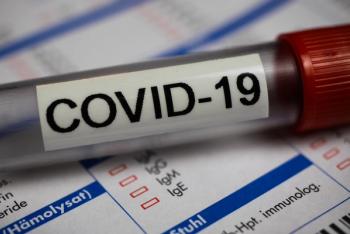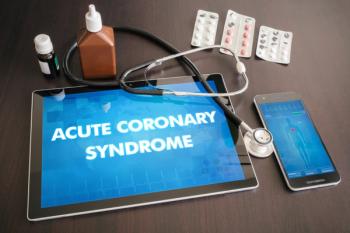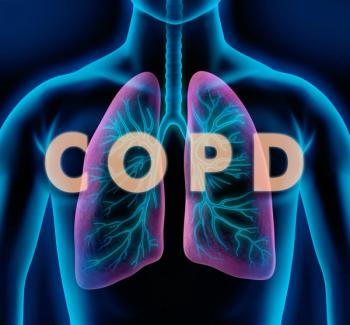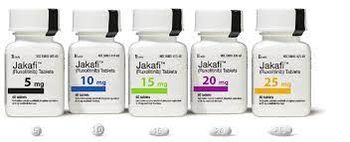
Clinical
Latest News
Latest Videos

More News

New findings show that undocumented Latinx immigrants, who make up 7% of the US population, face significant challenges in accessing health care due to uninsurance, limited access to care, language barriers, and fears surrounding their immigration status.

Investigators say thrombospondin-4 levels were reduced in patients with symptoms of spinal muscular atrophy (SMA), but levels of the protein increased after therapy.

Early Intervention, Targeted Strategies Needed to Improve Disparities, Survival in Patients With IPF
Two posters presented at the CHEST 2024 annual meeting highlighted the importance of addressing socioeconomic disparities and identifying clinical predictors to improve outcomes and survival rates among patients with idiopathic pulmonary fibrosis (IPF).

The prevalence rates of metabolic dysfunction–associated steatohepatitis (MASH) and metabolic dysfunction–associated steatotic liver disease (MASLD) are likely underestimated using claims data alone.

Toby Maher, MD, PhD, discusses how idiopathic pulmonary fibrosis (IPF) severely affects patients’ quality of life and daily functioning, with a median survival that underscores the disease’s severity, while also highlighting the substantial financial burden and health care resource utilization associated with managing this condition.

Toby Maher, MD, PhD, discusses how idiopathic pulmonary fibrosis (IPF) is a specific form of interstitial lung disease characterized by progressive lung scarring, which leads to significant respiratory impairment and distinct clinical challenges compared with other interstitial lung diseases.

Bipolar disorder is commonly misdiagnosed depending on the features that present, explained Stephanie Hsia, PharmD, MAEd, BCPP, of University of California, San Francisco.

Two genes were shown to be significantly associated with higher prevalence of myasthenia gravis (MG), a relatively rare autoimmune disease.

Using Mendelian randomization analysis, researchers found evidence that 2 small groups of immunophenotypes are linked to either greater or lesser odds of developing pulmonary arterial hypertension (PAH).

Despite advancements in umbilical cord blood transplants, social determinants of health, such as poverty and public insurance, continue to impact outcomes, underscoring the need for equitable access to lifesaving treatments.

Two posters presented at the CHEST 2024 annual meeting highlighted significant disparities in acute coronary syndrome care and outcomes among different racial, ethnic, and gender groups, underscoring the urgent need for targeted interventions to address these inequities.

Because sickle cell disease isn’t as progressive a disease as others that have gene therapies available, there isn’t as much urgency to start on these expensive therapies, said Kevin Niehoff, PharmD, BCMAS, associate director, Market and Financial Insights, IPD Analytics.

Two posters compared health care resource utilization (HCRU) and financial burdens of people living with HIV with a non-HIV population and people with HIV who are heavily treated with those have experienced less treatment.

Patients with low-count chronic lymphocytic leukemia phenotype monoclonal B-cell lymphocytosis had a 1.86-fold greater risk of melanoma.

Panelists discuss how health care providers can improve patient education and support for type 2 inflammatory conditions through personalized communication strategies and shared decision-making, while also evaluating the role of emerging biologic therapies in treatment plans based on individual patient factors, disease severity, and biomarker profiles.

The phase 2 PICCOLO trial demonstrated that mirvetuximab soravtansine (Elahere; AbbVie) is effective and tolerable in heavily pre-treated patients with folate receptor alpha-positive (FRα+), platinum-sensitive ovarian cancer.

Two posters at the CHEST 2024 annual meeting revealed that 18% of eligible patients hospitalized with acute exacerbations of chronic obstructive pulmonary disease (AECOPD) participated in post-discharge pulmonary rehabilitation (PR), with ineligibility significantly limiting uptake.

One of the key highlights was the discussion of Pulmonary Embolism Response Teams (PERT), addressing controversies in PE management and focusing on personalized, patient-centered care.

Two posters presented at CHEST 2024 revealed significant racial and ethnic disparities in the hospitalization and treatment of patients with idiopathic pulmonary fibrosis (IPF), with Black patients hospitalized at younger ages but less likely to receive antifibrotic medications than White patients.

Investigators added more data to an analysis first published in 2020 and got the same result: ruxolitinib beats other treatments for polycythemia vera.

Posters presented at the CHEST 2024 annual meeting demonstrated air pollution's role in lung impairment and disease, highlighting the urgent need for providers to address the escalating impacts of climate change on lung health.

Panelists discuss how incorporating HER2-directed therapies into NSCLC management strategies within managed care settings impacts clinical outcomes, operational processes, and economic considerations, while emphasizing the importance of identifying and selecting patient populations most likely to benefit from these targeted treatments.

A panel of experts explores the objectives and design of the COORDINATE-Diabetes trial, discussing its potential impact on the treatment paradigm for diabetes management.

Panelists discuss how persistent unmet needs in HER2-directed therapy for NSCLC present opportunities for future research and pipeline therapies, potentially addressing challenges such as treatment resistance, improved efficacy, or reduced toxicity profiles.
















